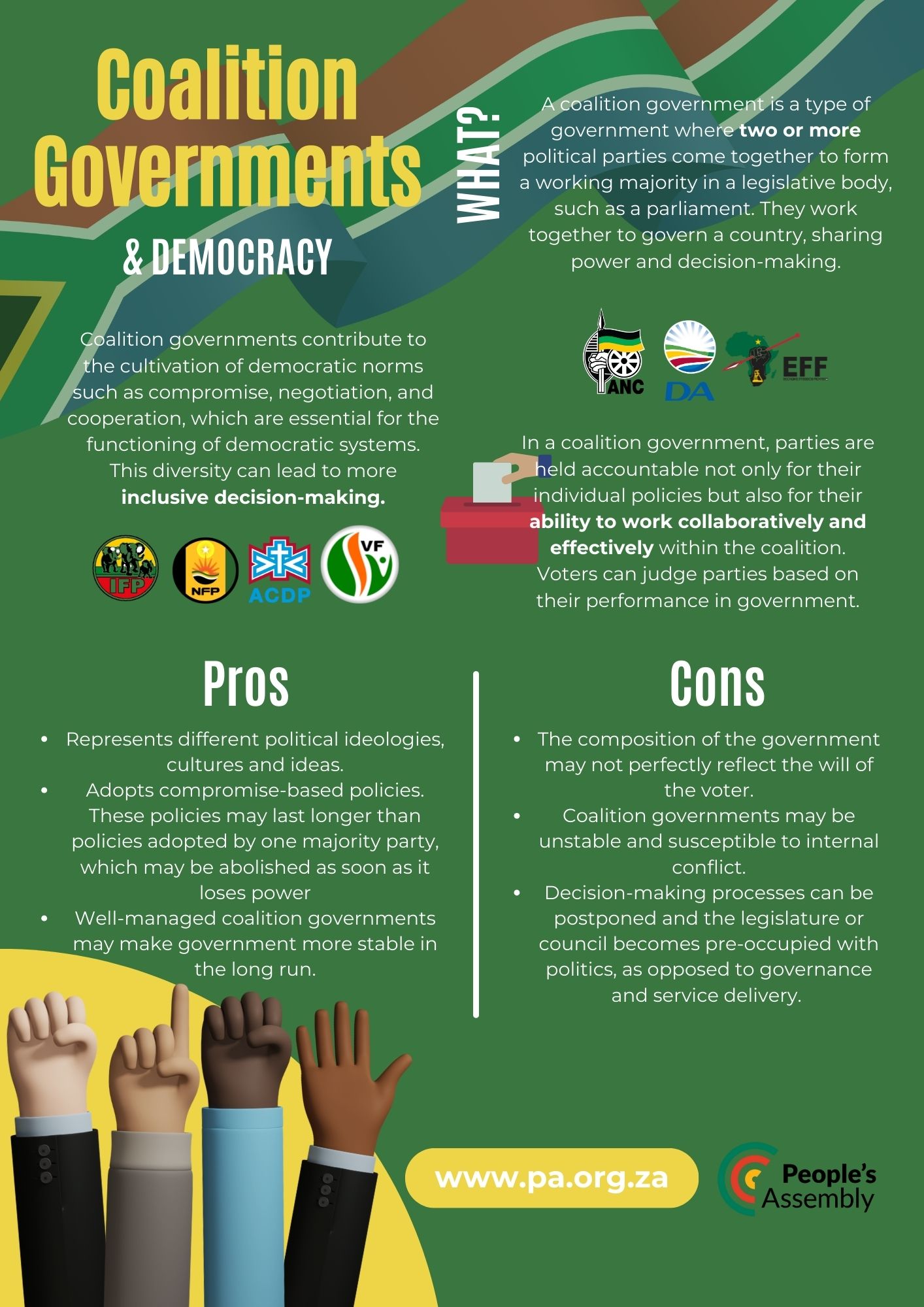In the realm of democracy, coalition governments often emerge as a testament to the vibrant tapestry of political ideologies and citizen voices. These unique alliances of political parties bring a distinctive flavour to democratic systems worldwide, emphasising cooperation and compromise as essential pillars of governance.
One of the core strengths of coalition governments lies in their ability to represent a wide spectrum of political views. They create a space for smaller parties and their constituents, ensuring that the voices of various segments of society are heard in the halls of power. In doing so, coalition governments promote inclusivity and diversity, hallmarks of robust democracies. In South Africa, elections always result in multiple parties being represented in Parliament, a provincial legislature or a municipal Council. If a party does not have more than 50% of the seats, two or more of them will have to join forces in order to achieve a majority.
Coalition governments act as a built-in system of checks and balances. Ideally, no single party can wield unchecked power, and decisions are made through negotiation and consensus. This not only prevents potential abuses of power but also encourages a culture of cooperation and compromise—a fundamental aspect of democratic governance.
Coalitions have been a recurring feature in South African politics since 1994. The initial democratic national government following the 1994 elections was a wide-ranging coalition known as a Government of National Unity. Moreover, coalitions have been observed at the provincial level in the Western Cape and KwaZulu-Natal, as well as in municipalities, dating back to the inaugural democratic local government elections in 2000. Nevertheless, the significance of coalitions has escalated notably since the 2016 and 2021 local government elections, during which an increasing number of municipalities, including major cities, experienced what is commonly referred to as 'hung councils.' This term refers to situations where no single party secured a majority of council seats.
In coalition governments, parties are not only held accountable for their individual policies but also for their ability to function effectively within the coalition. This ensures that voters have the power to judge parties not just on their promises but on their actual governance performance. A survey conducted by Afrobarometer in June 2023, revealed that a significant portion of South Africans express dissatisfaction with the functioning of democracy in the country. A limited number of citizens perceive South Africa as a capable democracy, and an increasing majority would be open to the idea of foregoing elections in favour of an efficient, non-elected government that can provide security, employment opportunities, and housing.
South Africans prioritise unemployment as the most pressing issue in the country, followed by concerns about crime and security, electricity, water supply, and corruption. Only a minority claim to have a strong affiliation with any political party. In the event of immediate elections, the ruling African National Congress would maintain its lead, with roughly one-third of respondents supporting it, although a larger segment of the population refrains from disclosing their voting intentions.
The National Dialogue on Coalitions took place on 4-5 August 2023 at the University of Western Cape and set the scene for the development of a National Framework on Coalition Governments. The Framework is expected to guide management of coalitions and ensure that service delivery and governance are not negatively impacted by disagreements between political parties, ensuring effective governance.
Despite the reality of coalition governments in South Africa, by nature they foster inclusivity, representation, and cooperation, and play a vital role in strengthening the democratic fabric of the country. Overall, coalition governments contribute to the cultivation of democratic norms such as compromise, negotiation, and cooperation. These norms are the lifeblood of democratic systems, and coalition governments provide a practical platform for their exercise.
Source:


Comments
Keep comments free of racism, sexism, homophobia and abusive language. People's Assembly reserves the right to delete and edit comments
(For newest comments first please choose 'Newest' from the 'Sort by' dropdown below.)